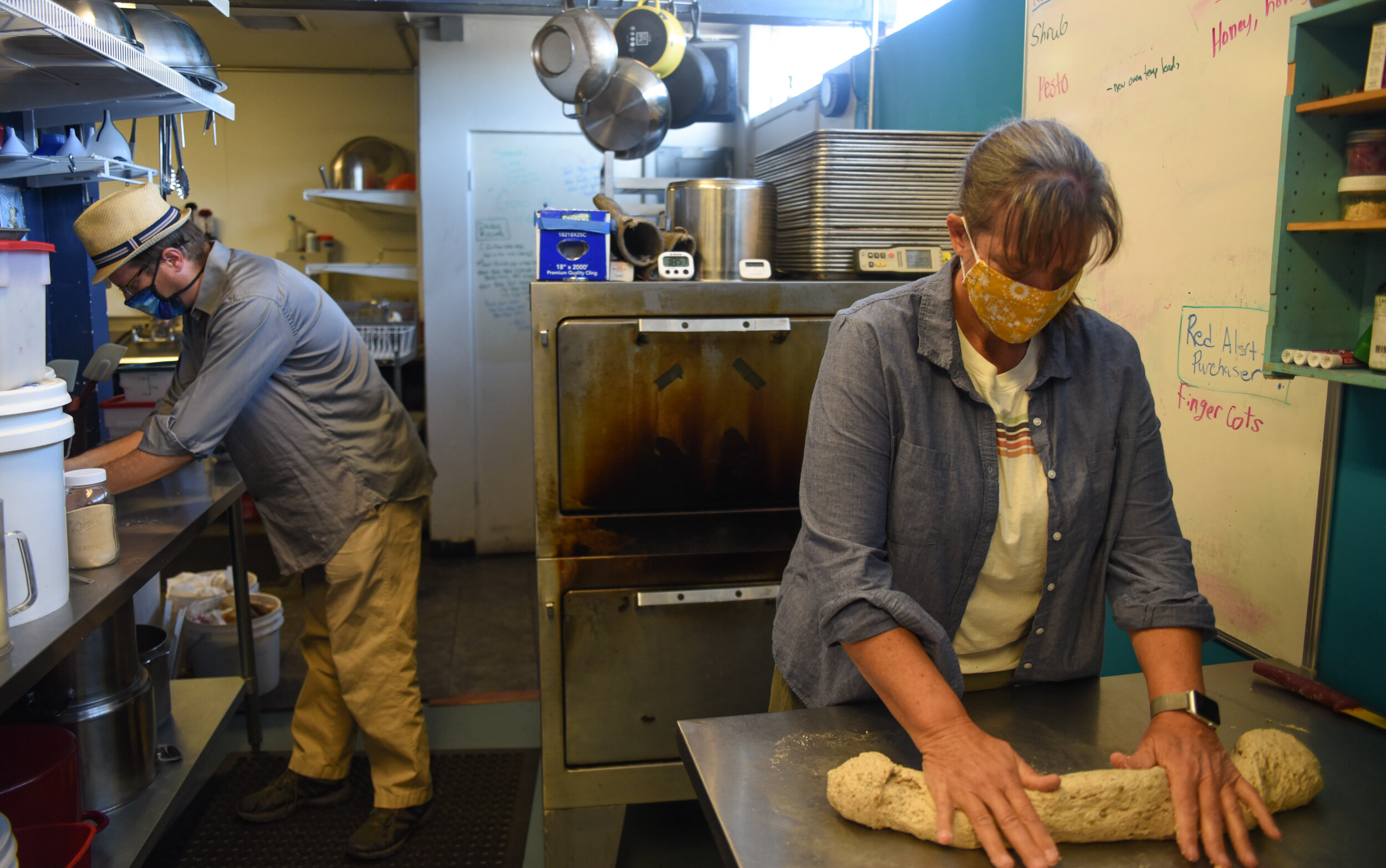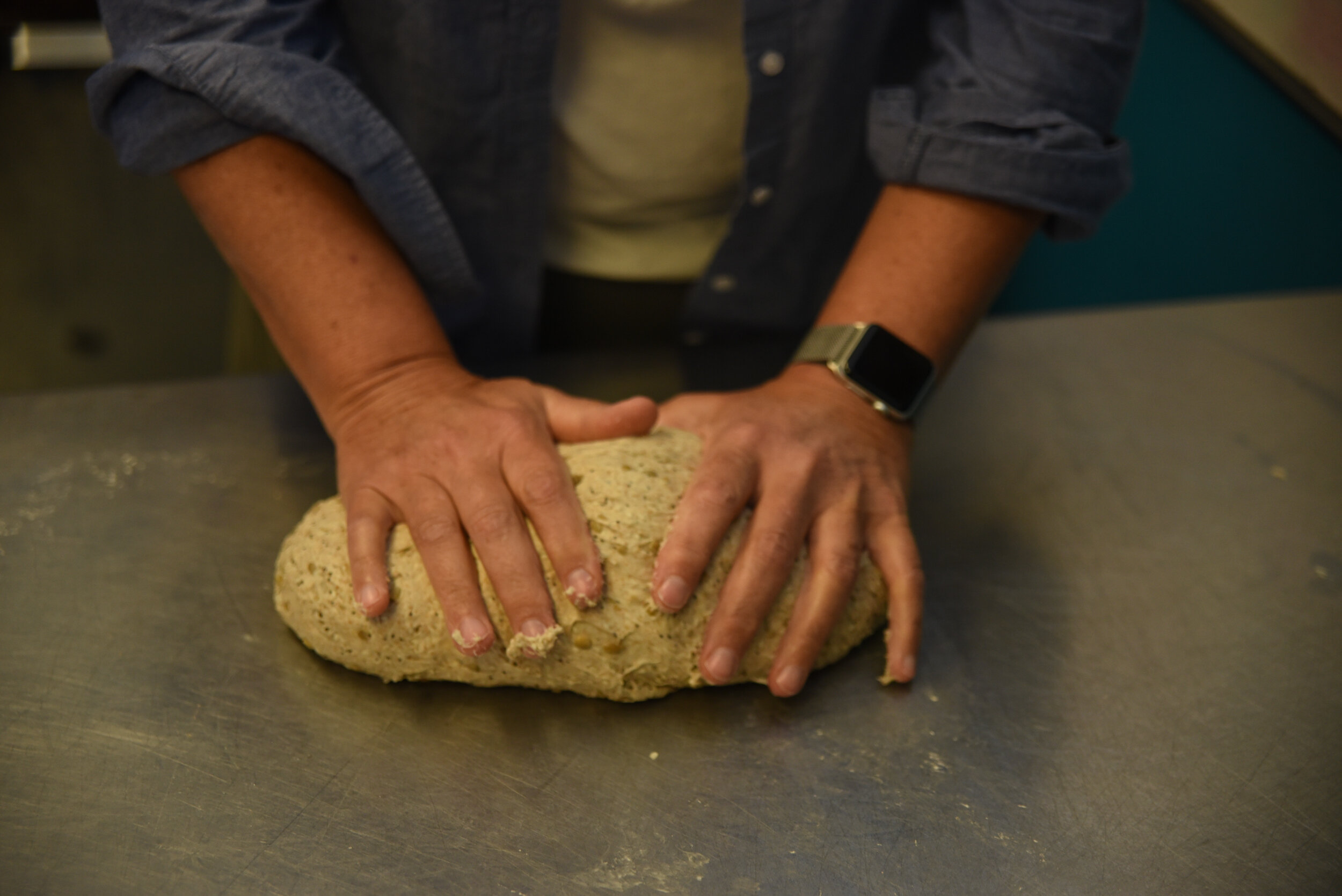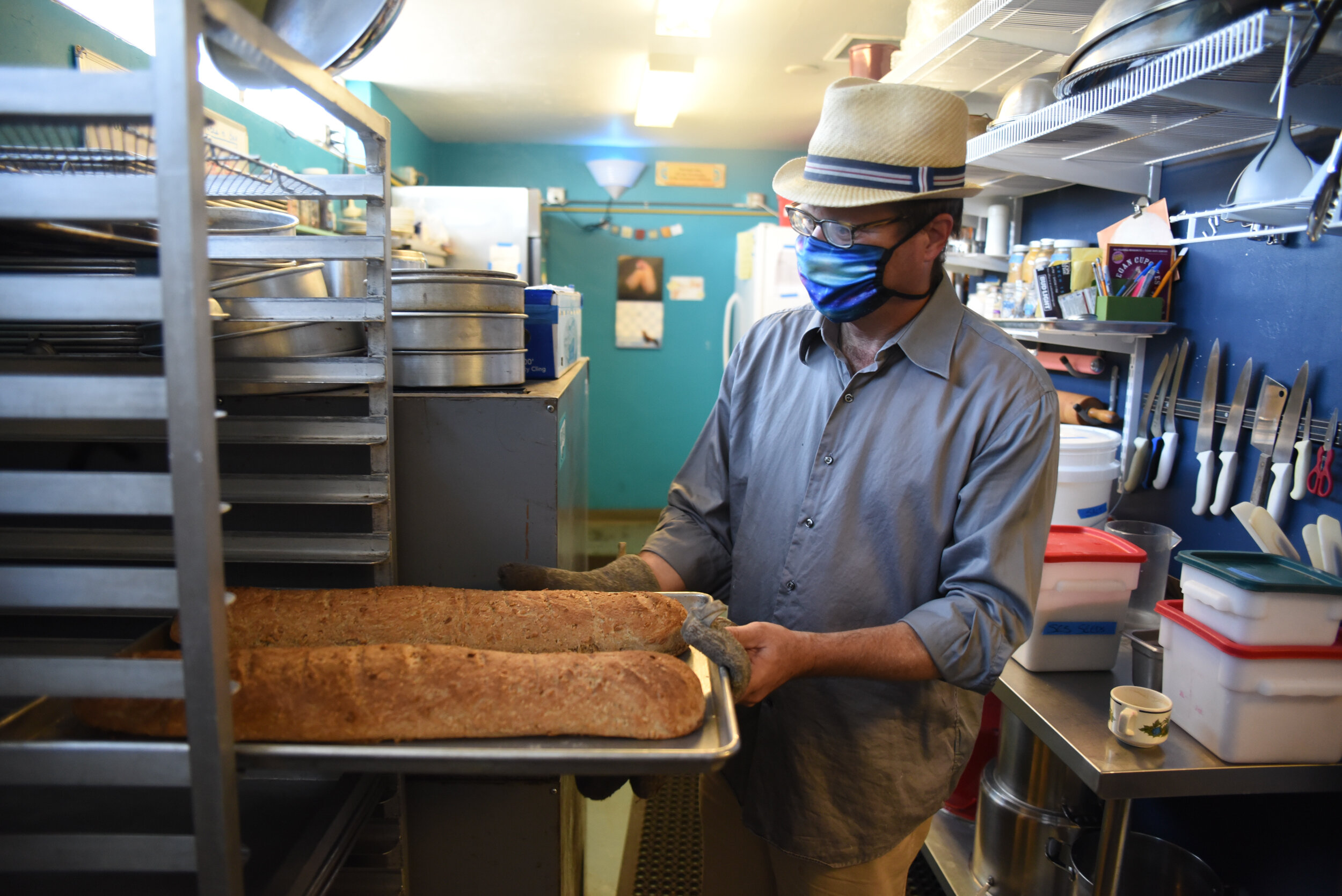Starting a Conversation about Food Justice
“Coffee is a conversation about justice,” said Jana Joramo, co-owner of Copeka Coffee. “The people who are growing food in our fields right now, in the United States, come from the areas that prepare the coffee in your cup. We need to remember it and protect each other.” From sourcing the product, to respecting how it is used, Jana has conversations with her employees about the importance of understanding where the product comes from and not wasting an ounce of coffee. “You think about Ethiopia, Kenya, El Salvador, Honduras, Brazil some of which are war-torn areas,” explained Jana, “When I see any grounds being wasted, I tell my employees, 'you treat that like it's gold because most people in Kenya don't get to drink their own product.'”
Jana Joramo
Food justice is known as a movement of movements. Encompassing racial justice, food security and sovereignty, and environmental and economic justice, food justice lies at the intersection of these social issues facing society. Food justice means that everyone has the right of access to healthy and sustainable food options. It also means respecting where food comes from and represents the consumer’s responsibility that food is coming from sustainable sources and is accessible to everyone.
COPEKA coffeehouse is owned by Jana, her husband Lee and their daughter, Kyra. The mural on the side of their cafe that reads, “so glad you exist,” is the exact sentiment that fills the atmosphere of this coffee shop in Grand Junction, Colorado. Inclusivity is the foundation of their shop which is located intentionally between the highschool, college, and other local businesses, to serve as a meeting place to a variety of demographics.
Jana and her family research every dime that they spend on their business and are constantly challenging their ways of thinking. Vanilla is an extremely common flavor but less than 1% of it comes from a fully natural source. “So many people started ordering vanilla, that it started being manufactured, made in science labs. And now, vanilla is something that just a few farms grow.” COPEKA avoids supporting controversial and unethical vanilla farms by using direct trade sources from Papua New Guinea and other locations in Indonesia. Vanilla is a bean and COPEKA creates their own vanilla extract from it, using a direct trade source. For several years, consumers turned to vanillin, which is created in a laboratory and this caused a shortage in the vanilla plant. Because of this, it is hugely expensive now and human traffickers have seized the opportunity to force people into harvesting vanilla beans. COPEKA gets their vanilla from the Vanilla Queen, which is a direct trade vanilla company.
Naturally, coffee, the most prominent item on their menu, is also carefully researched before sourcing. “The coffee we sourced is from Cat and Cloud coffee from Santa Cruz, California. Cat and Cloud is actually really good friends with the people that they're buying their coffee from and they will actually buy an entire lot of coffee and tell the farmers, ‘go for it, do anything you want. Just play.’ So we're getting some amazing coffee from two sisters in Costa Rica and from these brothers in El Salvador. Whereas in other coffee companies, they're just buying from traders who are saying that they're fair trade, that means that the farmer had to pay to be on a list. The farmer who's making less and less every year. And a lot of those farmers are actually leaving their homes and getting onto the caravans and coming North. But not Cat and Cloud farmers, because they bought their entire lot.”
Jana and her family source their milk from Denver and use local fruit brought into them to make jams and jellies for the shop. “We think of it in terms of the whole web. Where am I and what can I do?” said Jana. “It starts with microservices, maybe all you can do is bring blankets to the homeless shelter but those services help connect your community and show love,” said Jana. From starting conversations with her employees about where their products come from to hosting organizers from around Grand Junction, Jana hopes to create an environment where people can come together and continue these conversations and make progress towards a more just society.
The goal is that one day, COPEKA will be an employee owned co-op. Jana seeks out to hire people who are progressive and willing to have difficult conversations about the social issues facing Grand Junction and beyond. “To turn this into a local co-op, I think we really need to have a lot of these conversations. So when I see someone submit a resume that says they worked on a living wage campaign, I really like that,” said Jana. By establishing an inclusive environment that not only employs and benefits community members but also encourages a safe space for discussions and organizing, Jana hopes to build stronger community bonds and to work towards progress.
Before starting COPEKA, Jana worked with the health department on a community survey which revealed some issues with her community and the mental health of the people living in it. “We had a really high suicide rate here in the Grand Valley. I was taking part in a survey with the Health Department. And what we were finding repeatedly was that people live in silos here in the Grand Valley. What I mean by that is that they don't have any other community connection, beyond the places that they have in their habits. And that place is generational,” said Jana. Jana hopes that COPEKA can be a common meeting place between not only generations, but also along the political spectrum. “There are a lot of people who are on both ends of the spectrum,” said Jana, But almost every one of them is interested in fighting against climate change, for instance. There's a lot more common ground here than I think people think.”



All food has a story from the place it starts to the kitchen it’s prepared in. Being one of the main elements that sustains life, people all over the world are starting to be more in tune with where their food comes from, how it's produced, and who is being impacted by its production. Whether it's a coffee bean or a hamburger, food justice starts with more connected communities that are able to sit down and start a conversation.





